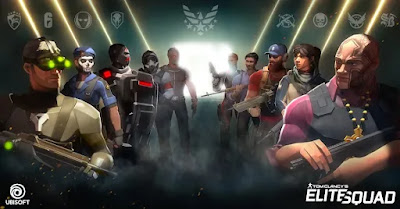Saturday, 31 July 2021
Keeping up with the Genshin-ians
Friday, 30 July 2021
Umbra: The Sword of Souls
Thursday, 29 July 2021
'The Abyss' Trope
That is because this land, unlike every other in the game, isn't ruled over by a god, or Archon, making it totally unique against everything else we've seen in the game so far and linking to the concepts of false god hood that keep being bought up in the story. This society ends up coming to ruin, and the Abyssal Order are it's remnants striking out at the god-ruled lands with some unknowable end in mind. For this instance, the concept of 'the Abyss' is synonymous with destruction, or even just the absence of Divinity. As though being without the guiding hand of some sort of god is to be lost, creating some interesting interpretations for the message; is freedom itself 'the abyss'? That questions like this can be even be derived by something as ostensibly straightforward as Genshin Impact speaks wonder for the effect of the trope on the narrative, although until the story of Khaenri'ah is expanded we're working purely with speculation at this point.
Yet from that void comes agents intent on dragging all that does exist back towards nothingness, and thus the ultimate goal of this 'Void' always seem to lay down a blanket of nonexistence over everything. In this sense, the trope presents it's 'Abyss' as a force of primordial nature intrinsically opposed to all that is, almost in spite of common sense and reasoning. An approach that feels like it excludes deeper introspection but I'm sure we could wax lyrical about the meaning behind meaningless if we were really desperate to search for meaning. We're not, however, and I'd call Divinity's interpretation of 'The void' as the prototypical approach from which to compare all others.
And now onto my favourite; the world of Dark Souls. In this universe ruled by primordial flames, wisps of souls and the dark essence known as Humanity, it only makes sense that the approach towards 'The Abyss' and it's role in the overall narrative is atypical. This is one of those games that also, famously, has a highly interpretive foundation for the lore, thus nailing specific concepts such as this one are difficult without coming to one's own conclusions on the matter. 'Abyss' seems intrinsically linked the concept of 'Humanity', (otherwise known as 'shards of the Dark Soul') and seems to represent the other end of the spectrum to the 'hollowing' we see throughout the majority of the franchise. Hollowing represents someone who has lost all their souls and humanity and thus lost themselves in the process, whilst becoming consumed by the Abyss appears to be (again, up to interpretation) given oneself over to the chaos of Humanity and being overwhelmed by it's influence.
Some significant moments throughout the franchise present pockets of Abyss as this chaotic consuming force that constantly threatens to corrupt and/or swallow all around it. (Although, crucially, still distinct from the wild nature-tied force known as 'Chaos') 'The Abyss' is still represented as overwhelming darkness, but it seems to stand for something more than just total annihilation, more like pure selfish consuming greed, perhaps even the hungry tyranny of Humanity itself. There's a lot to be said for allegory and the way it works within Dark Souls, but the take away I want for this blog is the plain fact that even a trope ostensibly presented like normal can still underlie deeper and interwoven concepts and thus evolve the original trope.
Last but by no means least is the version of this trope that I understand least, as it comes from that font of lore just a little too deep for me to get a complete handle over it all; D&D. This Abyss, or 'The Infinite Layers of the Abyss, is actually a plane of existence, rather than just the space between planes, placing it line with other realms such as The Prime Material plane (main setting for most of DnD) and the various other 'building blocks of reality'-esque planes. This Abyss is actually full with a great deal of substance to it, being as how it's home to The Nine Hells and several other antagonist realms besides. It's not perhaps the singular source of everything bad within the worlds of D&D, but it certainly houses it's demons, and demons make for pretty tempting scapegoats in any story
Interestingly, D&D's interpretation of 'The Abyss' is a lot less matter-of-fact and passive than other contemporaries. Whereas the Abyss might still be threatening in other stories, it's usually out of unconscious compelling of nature rather than concerted malice. This Abyss, though not exactly a sentient force of it's own, still stands to represent some form of pure evil; giving us an actual tag of the antagonistic on this version of the trope.


























